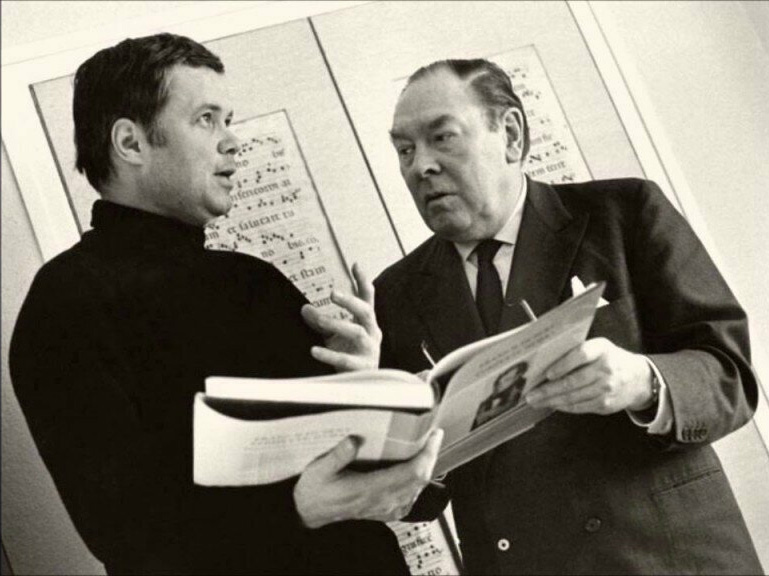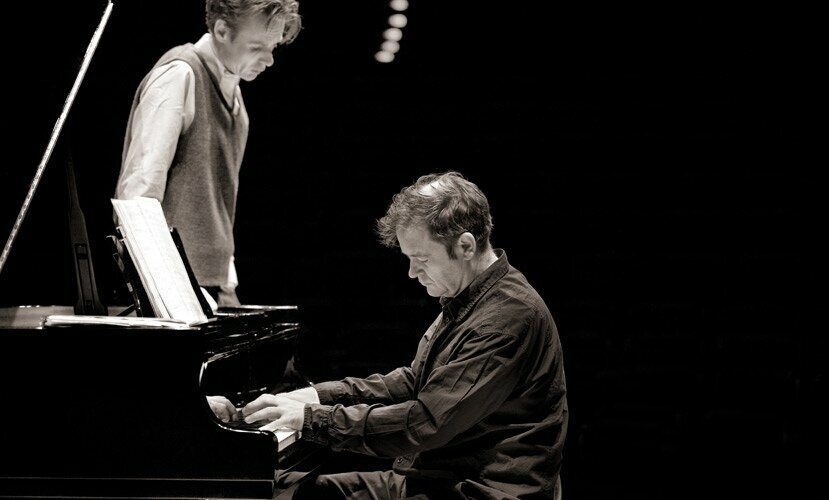
Dietrich Fischer-Dieskau and Gerald Moore
“I would like people to realise what extremely important people we accompanists are. The most enchanting lady walks on to sing, and all the ladies look at her because of what she’s wearing, and all the men look at her because – well, all the men look at her. And nobody looks at me. And I can’t blame them. Nobody notices the accompanist at all……. people think he’s there just to do what he’s told, to follow the singer through thick and thin. Well, there’s a great deal more to it than that.”
– Gerald Moore, acclaimed accompanist who worked with singers such as Dietrich Fischer-Dieskau and Elizabeth Schwarzkopf
As Gerald Moore confirms, accompanying is a highly skilled role and some pianists make this form of collaborative work their forte, preferring it to solo work (notable British examples include Julius Drake, Roger Vignoles, Anna Tilbrook and Joseph Middleton). Being a brilliant concert pianist may not make you a great accompanist, where sensitivity towards the other performer and the ability to work together to support and help one another are crucial.

Ian Bostridge and Julius Drake
© Sim Canetty-Clarke
“You have to be totally on your mettle, totally in the moment – and totally aware of the person you’re accompanying” – Anna Tilbrook
Beethoven: Cello Sonata in A Op. 69 (Csaba Onczay, cello; Jenő Jandó, piano)
In Beethoven’s duo sonatas for piano and violin and piano and cello, for example, the accompanist is more than an equal partner, Beethoven wrote the piano parts for himself to play, reflecting his own virtuosic skills, and he wasn’t going to be outdone by a mere violinist! But the accompanist’s role really comes into its own in the great art songs and Lieder of composers such as Schubert, Schumann, Brahms and Wolf, all of whom were pianists who wrote song accompaniments of great beauty, textural richness and profound expression. Here the piano becomes the source of colour to create infinite emotional variety, often leading the drama and continually reiterating it.
Today, with leading soloists such as Daniel Barenboim and Martha Argerich actively collaborating with other instrumentalists, the collaborative pianist is recognised as a musical equal and a significant artist in their own right.





You omitted Graham Johnson, who was the natural successor to Gerald Moore. He is a phenomenal musician, who, amongst other things, created the wonderful Songmakers Almanac in the 70s. Please don’t leave him out. He is also a fine biographer of Schubert.
This was a serious ommission!
Indeed! He was and is inspirational to many of us that have chosen this profession.
Not to mention Malcolm Martineau who is the very finest out there. He is in a different league both musically and pianistically. Shameful omission.
In Ghana here and at most concerts, a pianist is a hero and gets equal attention and at times even more attention than the soloist😄
Not all pianists need a colloborative pianist. Why some prefer to have them and others don’t.